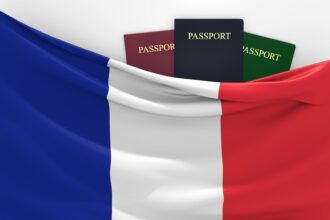The EU Artist Visa allows creative professionals, including musicians, visual artists, writers, and performers, to live and work in the European Union. This visa is a gateway for artists to collaborate, showcase their talents, and gain international exposure in Europe’s thriving art and culture scene. For Nigerian artists, the EU Artist Visa offers an opportunity to expand their careers beyond borders, gaining access to diverse artistic communities and resources in the EU.
This guide explains the eligibility criteria, application process, and tips to secure an EU Artist Visa as a Nigerian creative professional.
For official details on EU visas and country-specific requirements, refer to the European Union’s official immigration website.
Understanding the EU Artist Visa
The EU Artist Visa, often referred to as the Cultural, Freelancer, or Self-Employment Visa depending on the country, enables artists and creative professionals to work within the EU for an extended period. Each country has its own artist visa category, and requirements can vary based on local immigration laws and cultural policy priorities. Some EU countries, like Germany and France, are especially popular among artists for their supportive artist visa programs.
Key Benefits of the EU Artist Visa
- Extended Stay and Work Opportunities: Unlike tourist visas, an artist visa allows for extended residency and work authorization, ranging from a few months to several years.
- Access to Art and Culture Resources: Residency in an EU country allows artists to access resources, funding opportunities, and exposure within the European art community.
- Networking and Collaboration: EU residency facilitates collaborations with local and international artists, creating a broader platform for creative expression.
Eligibility Requirements for Nigerian Applicants
While eligibility criteria vary by country, common requirements for EU Artist Visa applications include:
- Proof of Artistic Purpose: Applicants must demonstrate that their primary purpose in the EU is related to artistic or cultural work, such as a scheduled exhibition, concert, performance, or project.
- Portfolio and Professional Experience: A strong portfolio showcasing the applicant’s work and professional experience in their field.
- Financial Stability: Proof of financial stability, which may include bank statements, sponsorship letters, or proof of regular income.
- Health and Travel Insurance: Applicants are usually required to have valid health and travel insurance covering their entire stay in the EU.
- Residence in Host Country: Evidence of housing arrangements or residency plans in the host EU country.
Popular EU Countries Offering Artist Visas
Several EU countries have established artist visa programs, each with specific requirements and benefits. Here are some of the most popular options for Nigerian artists:
1. Germany: Artist Visa (Freiberufler)
Germany is well-known for its artist visa, particularly in cities like Berlin, which has a thriving arts community. The German Artist Visa (Freiberufler) allows self-employed artists and freelancers to live and work in Germany for an extended period, typically starting with one or two years, with the possibility of extension.
- Application Location: German Embassy in Nigeria or local German immigration office if applying from within Germany.
- Key Documents: Portfolio, artist biography, letters of intent from German clients, proof of financial means, and health insurance.
- Processing Time: Approximately 3-6 months.
For more information on the German Artist Visa, visit the German Federal Foreign Office website.
2. France: Talent Passport – Artist
France’s Talent Passport – Artist visa is designed for artists, musicians, and other creatives with a solid professional record. This visa allows artists to live and work in France for up to four years and is renewable. It’s particularly suitable for artists with plans to collaborate with French institutions or who have specific artistic projects in France.
- Application Location: French Embassy in Nigeria or the French immigration office if already in France.
- Key Documents: Proof of artistic activity, CV, project proposal, letters of invitation or contracts from French organizations, and proof of financial means.
- Processing Time: Approximately 3-6 months.
For more information on the French Talent Passport, visit the French Government’s visa website.
3. The Netherlands: Artist Residence Permit (for Independent Artists)
The Netherlands offers a residence permit for independent artists, allowing them to live and work in the country as self-employed professionals. This visa is granted based on the artist’s unique contribution to Dutch culture and requires a strong portfolio or proof of upcoming projects.
- Application Location: Dutch Embassy in Nigeria or local immigration office in the Netherlands.
- Key Documents: Portfolio, artist CV, letters of intent or contracts, proof of financial independence, and health insurance.
- Processing Time: Approximately 2-4 months.
For more information on the Dutch artist visa, visit the Dutch Immigration and Naturalisation Service (IND) website.
Step-by-Step Guide to Applying for an EU Artist Visa as a Nigerian
Step 1: Research the Specific Requirements of Your Chosen Country
Since each EU country has unique requirements for artist visas, the first step is to research the visa requirements and options available in the country you wish to reside in. Each embassy or consulate provides detailed instructions on its website.
Step 2: Prepare Your Portfolio and Artistic Documentation
Your portfolio is one of the most critical parts of your application. This should include:
- Portfolio of Work: Visual artists may include images of their artwork, while musicians may submit recordings or concert information. Writers should include published work samples.
- Resume or CV: A professional CV detailing your experience, exhibitions, collaborations, and achievements.
- Project Proposal or Statement of Intent: Describe your purpose for living in the EU, such as upcoming exhibitions, performances, or collaborative projects.
Step 3: Gather Financial and Health Documentation
Most EU artist visas require proof of financial stability. This can include:
- Bank Statements: Showing that you have sufficient funds to support yourself.
- Sponsorship Letters: If an organization or institution is financially supporting you, provide an official sponsorship letter.
- Proof of Income: If you have regular income through artistic work, include contracts, royalty statements, or recent payments.
Health insurance is also required for the entire duration of your stay, and applicants must provide proof of a comprehensive insurance plan that meets EU standards.
Step 4: Secure Letters of Invitation or Contracts
If you have upcoming exhibitions, performances, or collaborative projects, request letters of invitation or contracts from the associated EU organizations or partners. These letters demonstrate that your stay in the EU will contribute to the cultural landscape and verify your planned activities.
Step 5: Complete the Application Form and Submit at the Consulate or Embassy
Once all documents are prepared, complete the application form for your chosen country’s artist visa. The application should be submitted to the consulate or embassy of the relevant EU country. Here’s what to expect:
- Application Submission: Visit the embassy or consulate to submit your application, or apply online if your country of choice allows it.
- Interview: Attend an interview if required, where consular officers may ask about your artistic background, purpose in the EU, and financial capacity.
- Biometrics: Submit fingerprints and a photograph as part of the biometrics process.
Step 6: Await Processing and Obtain Your Visa
Processing times vary by country, typically ranging from a few weeks to several months. It’s advisable to apply well in advance, as delays can occur. Once approved, you will receive an artist visa or residence permit allowing you to live and work in the EU for the specified period.
Tips for a Successful EU Artist Visa Application
- Provide Comprehensive Artistic Evidence: Your portfolio, project proposal, and supporting letters are vital. Make sure they highlight your skills, artistic impact, and planned contributions to the host country’s culture.
- Demonstrate Financial Independence: Embassies need to see proof that you can support yourself without relying on public funds. Provide clear and organized financial statements or sponsorship letters.
- Show Your Cultural Contribution: Explain in your proposal how your work will benefit the local arts scene. Consider mentioning previous exhibitions, collaborations, or how your work aligns with the host country’s cultural values.
- Be Consistent and Transparent: Ensure all documents, including financial records and artistic evidence, are accurate and consistent with the information on your application form.
- Apply Early: EU visa processing times can be long, and scheduling delays are common. Start your application as early as possible to avoid any last-minute issues.
Frequently Asked Questions About the EU Artist Visa for Nigerians
1. Can I work part-time on an EU artist visa?
Yes, in most cases, the artist visa allows you to work part-time or freelance within your artistic field. Check specific country regulations, as some may have restrictions on additional employment.
2. Is it possible to renew an EU artist visa?
Yes, artist visas are often renewable. If you can demonstrate continued work in the arts and financial independence, you may apply for an extension through the relevant immigration office in your host country.
3. Can my family accompany me on an EU artist visa?
Some countries allow family members to join visa holders, but this varies by country. Check with the embassy or consulate to see if family visas are permitted under the artist visa program.
4. How long does the EU artist visa process take?
Processing times vary by country and visa type, typically between 2-6 months. Apply early to ensure sufficient time for processing.
5. Can I apply for permanent residency in the EU with an artist visa?
In some EU countries, long-term artist visa holders may be eligible for permanent residency after a specific number of years. Residency rules vary by country, so consult with immigration authorities for more details.
Conclusion
The EU Artist Visa offers Nigerian creative professionals an exciting opportunity to live and work within Europe’s vibrant arts community. By understanding the specific requirements, preparing a strong portfolio, and demonstrating financial independence, artists can successfully navigate the application process. Each EU country has unique criteria, so thorough research and careful preparation are essential.
For the latest visa information and to access application forms, visit the relevant EU country’s consulate or embassy website, or consult the European Union’s official immigration page.



